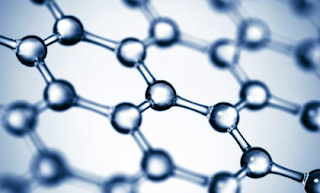Graphene has been used to turn seawater into clean drinking water, which could turn out to be a life saver.
The graphene sieve was shown to filter common salts from the water, and scientist say the technology could be scaled up – potentially providing hope to the millions of people around the globe who have limited access to clean water.
Graphene – often dubbed a wonder material – was first isolated by scientists in 2004. It is just one atom thick, extremely light and around 200 times stronger than steel. It is highly flexible and an excellent conductor of heat and electricity, making it of huge interest to scientists in real-world applications.
Scientists at the University of Manchester have now shown how graphene-oxide membranes can be used as an efficient filtration system. Publishing their findings in the journal Nature Nanotechnology, the researchers were building on previous work showing how these membranes could be used to filter nanoparticles, organic molecules and salts.
The team had shown how when immersed in water, the graphene-oxide membranes would swell up, causing larger salt ions or molecules to be blocked out. Building on this, they created a sieve that stops the graphene membrane from swelling when exposed to water, meaning the pore size can be controlled. As a result, they could filter out common salts from water (like seawater), making it safe to drink.
"Building on these findings, we demonstrate a simple scalable method to obtain graphene-based membranes with limited swelling, which exhibit 97 percent rejection for NaCl [sodium chloride]," they wrote.
The discovery has huge real-world implications. An estimated 663 million people worldwide do not have access to clean water close to their homes, with many having to travel long distances or queue for hours to get it. Under its current Sustainable Development Goals, the United Nations hopes to make sure everyone on the planet has access to safe water by 2030.
But this will not be easy. Climate change is putting more people's water security at risk – increased droughts, flooding and melting glaciers all lead to greater risk of shortages. And this, in turn, threatens food production, sanitation, energy and industry.
The researchers said their graphene sieve can be scale up for industry, and membranes can be created with "on-demand filtration", meaning ions can be removed according to their sizes.
Corresponding author Rahul Nair said: "Realisation of scalable membranes with uniform pore size down to atomic scale is a significant step forward and will open new possibilities for improving the efficiency of desalination technology.
"This is the first clear-cut experiment in this regime. We also demonstrate that there are realistic possibilities to scale up the described approach and mass-produce graphene-based membranes with required sieve sizes."
















0 comments:
Post a Comment